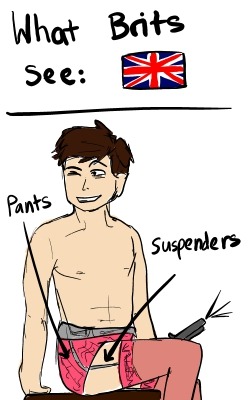I found Fox's chapter on linguistic class codes fascinating, and how both pronunciation of words and the words themselves are indicative of class. I don't think we're half as aware of class as the English are (at least, as Fox describes them), but I think Americans do have some reflection of this in our culture. Like the English, we have regional accents: southern, Jersey, Utah ... lots that seem to be attached to actual states. These affect pronunciation, and sometimes word usage. For example, in, say, Colorado, someone can offer you a Coke, and you will say "yes" or "no" and that's perfectly acceptable. In the south, someone will offer you a coke, and if you say "yes" or "no," they're going to ask you what kind, because "coke" doesn't mean "Coca-Cola," it means "soda." But back to the point I was making, I don't think we attach class distinctions to these sorts of linguistic variations for various reasons which I'd assume include the sheer size of the U.S. compared to the U.K. and general lack of attention to class distinctions in the U.S. period. We just don't have the class-ridden history that England does; in fact, we've kind of made a point of dismantling the class system. It's kind of a selling point for us.
At any rate, I realized as I was reading that, for whatever reason, I was subconsciously cataloging words I shouldn't say and congratulating myself for saying "upper class" words ... I was a little bit appalled because for one, I'm American, therefore I'll probably have a lot more problems in the way people perceive me than my socioeconomic class. Soon afterwords, I was scrolling through Tumblr, and found the following gem:
I had been previously made aware of the difference in the meaning of the word "pants" in America vs. Britain, but I had no idea about suspenders. It was at this point that I realized that, if I'm going to try to English-ify my grammar, I should probably worry more about eradicating the word "pants" than the word "pardon." Because talking about my pants in public is going to be a lot more problematic.
(FYI, there's a whole list of words that have different meanings in Britain vs. the U.S.: http://en.wikipedia.org/wiki/List_of_words_having_different_meanings_in_British_and_American_English:_A%E2%80%93L)




No comments:
Post a Comment